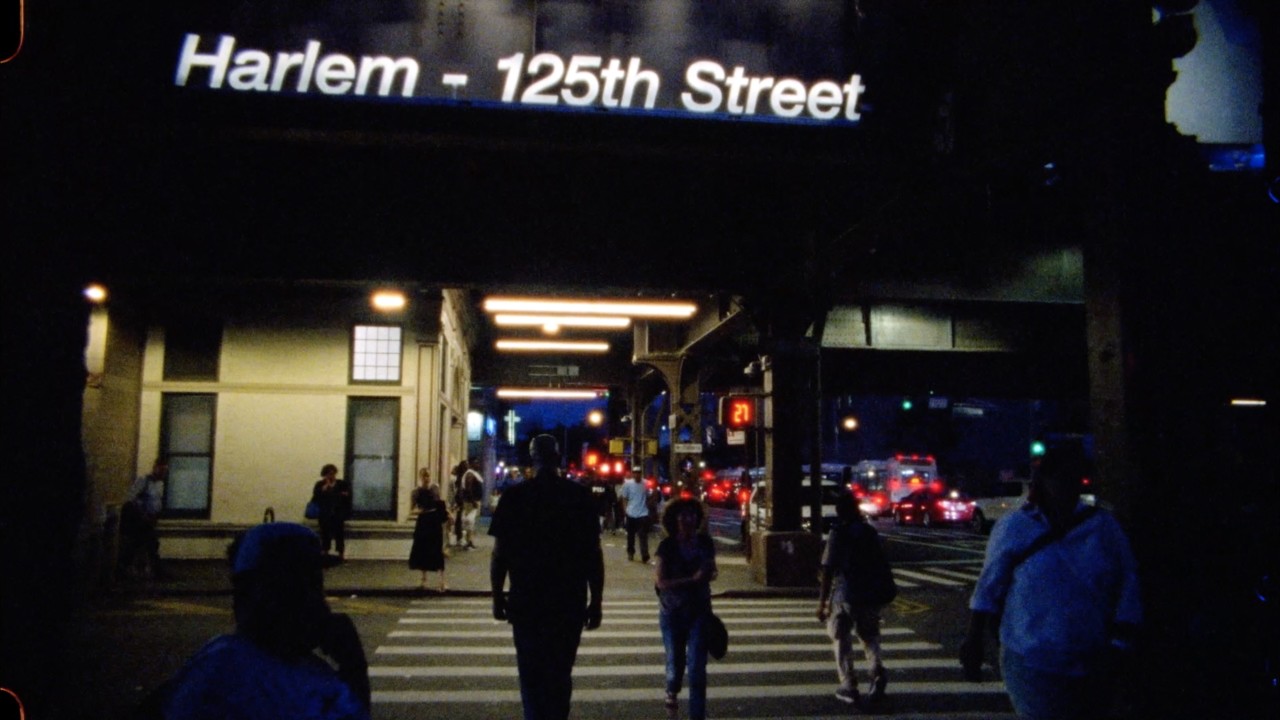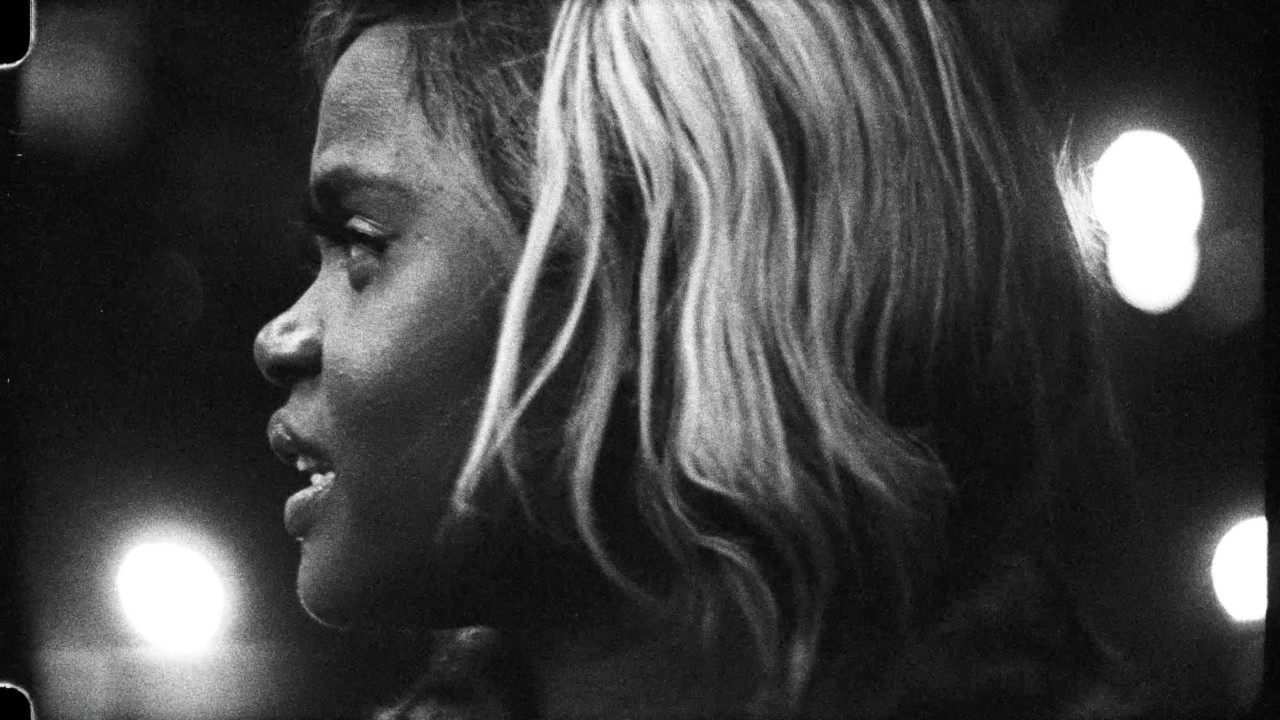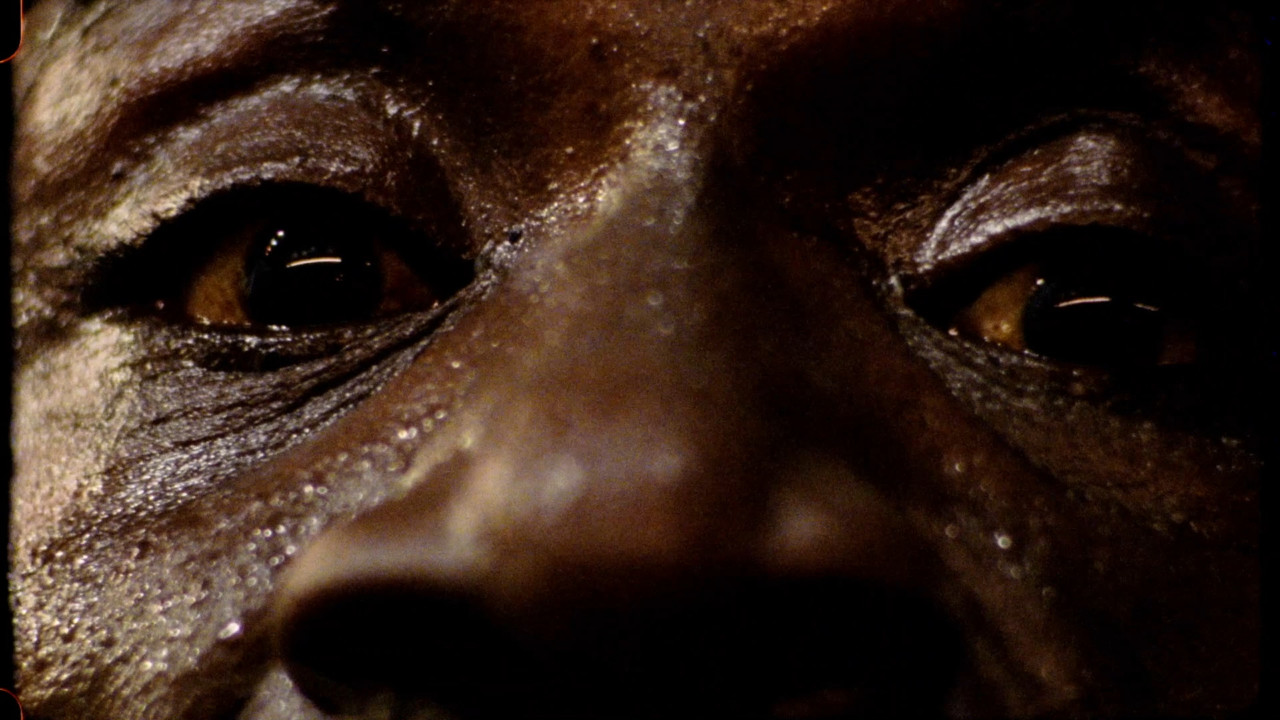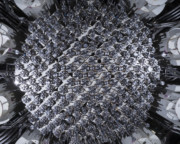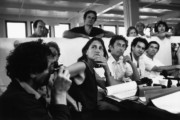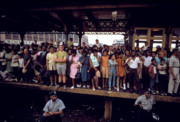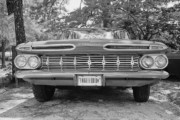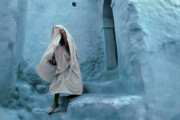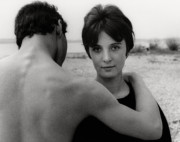I Walk on Water: Khalik Allah’s Documentary Poem
The 2020 Magnum nominee’s latest film is a meditation on inner conflict, his relationship with a place, and the spiritual light within the people he meets there
Khalik Allah’s latest film ‘IWOW: I Walk on Water’, focuses on the artist’s longtime muse Frenchie, a 60-something schizophrenic, homeless Haitian man, who he becomes increasingly intertwined with. Allah, whose previous moving image work includes 2018’s ‘Black Mother’, also turns the camera on himself to document a turbulent romantic relationship and grapple with personal notions of spirituality and mortality – all inquiries about which he gathers advice from charismatic confidants including Fab 5 Freddy, members of the Wu-Tang Clan, and, in deeply moving exchanges, his own mother. On the motivations behind his image-making practice, Allah says “My objective hasn’t changed, it’s always been to keep it real with myself; to stay true to my vision and to have the courage to express it cinematically. ‘IWOW’ is a sort of first-person documentary poem; a statement of my artistic integrity and my uncompromising dedication to the streets.”
Coinciding with the film’s screening at London’s Institute of Contemporary Art, Allah took part in two discussion events with the organization’s Head of Cinema, Nico Marzano, as well as culture editor at The Guardian, Shanida Scotland. Here, writer Aida Amoako examines the film and shares Allah’s reflections on his process in making the work, his collaboration with his subjects — who he meets in Harlem, and the role of art in personal and collective healing.
Filmmaker, photographer and 2020 Magnum nominee Khalik Allah’s ‘IWOW: I Walk on Water’ was recently on show at the Institute of Contemporary Art, London, as part of its annual festival Frames of Representation. At almost 200 minutes, the feature is Allah’s longest film–one he had not planned but ended up taking on as an “artistic challenge”. ‘IWOW’ takes the viewer through the streets of East Harlem at night, presenting a perspective on New York that focuses less on the cityscape and more on the people. Just as Harlem often blurs into a juxtaposition of overexposed light and shadowy shapes in the background of Allah’s photographs, in this sprawling work the physical place also takes a backseat to intimate close ups of the people the artist meets. “A person’s face is the landscape”, Allah says in a conversation with ICA’s Head of Cinema Nico Marzano, “you can see the streets in the faces of my subjects.”
Allah’s penchant for portraiture also creates much of the film’s fascinating conflict. Scenes seem to extend just past the point of comfort, focusing on the face of a Harlemite or playing audio of a particularly tense conversation for many uninterrupted minutes. Allah leans into this discomfort, asking the audience to endure. But it is not sadistic. Instead, there seems to be an implicit promise of revelation. In his Magnum nominee interview, Allah speaks about the people he meets who are sometimes battling homelessness and addiction, referring to their difficult circumstances as a “veil that is obscuring the deeper light a person has.” ‘IWOW’ seems to say, if you stick around long enough and give more than a perfunctory acknowledgement, that veil between the viewer and the film’s subjects will fall.
The complex relationships between Allah and his friends, family members and street acquaintances are the driving force of the film, which feels more intensely personal than his previous projects. The relationship that seems to thread ‘IWOW’ together, however, is that between Allah and a middle-aged “schizophrenic, bipolar” Haitian man named Frenchie, who has previously appeared in Allah’s photography and films. In a conversation with the Guardian’s Shanida Scotland recorded on Monday 7th December, Allah explains how fellow New York photographer Jamel Shabazz encouraged him to have conversations with his subjects and form these bonds. Allah himself realized that “125th and Lex is not the kind of place you just start a project and then leave.”
"All of us as human beings form one body. We seem to be separate and sometimes we seem not to get along well, and that’s like a form of self-sabotage."
- Khalik Allah
Documentary film and photography often raise questions about exploitation and power dynamics, concerns Allah discusses both on and off camera. For example, fellow artist and friend Fab 5 Freddy observes that Allah’s films do create narratives around his subjects which they can never fully consent to. Allah has described his subjects as his “co-creators”, saying to Marzano that while it is he who is “coming through with the camera, with the microphone, making a film, making a project, [the subjects’] lives are giving my films sustenance so we work together in that way.” For Allah, that dynamic is more than reciprocal: “I look at it as every single person is just another cell in the body. We’ve got cells in the eyes. I’m a filmmaker, a photographer, I’m like a cell in the eye. Some people are very emotional, they’re like a heart cell. Some people are very critical, and analytical, they’re like a cell in the brain. All of us as human beings form one body. We seem to be separate and sometimes we seem not to get along well, and that’s like a form of self-sabotage.”
Allah sees his mission, therefore, as healing that body. He tells Marzano, his work focuses on forgiveness and collective innocence. There is a thread of religiosity or spirituality running through the film, not least in the reappearance of Frenchie who had previously gone missing and was assumed by Allah in 2015 to be dead. The title, ‘IWOW’, is also a brazen and defiant statement conveying the sort of complete self-belief that makes others uncomfortable, which is also exhibited in the film when Allah says to his mother, “Hey mom, did you know you gave birth to Jesus Christ?” Allah tells Scotland, “It’s not that I want to be worshipped”. Instead, it is both about recognizing Jesus as an example and undoing what Allah sees as a damaging low self-esteem into which black children in America are indoctrinated. “When I’m speaking to my subjects, I’m trying to highlight the great history and the truth about who they are.”
Reflecting with Scotland on his nomination to Magnum this year, Allah acknowledged Eli Reed, the first Black photographer to join the collective full time, relating how Reed had encouraged him to consider joining. Discussing the difference in style and aesthetic between his work and that of many Magnum members, Allah commented that what he appreciated was what this diversity of approaches represented, citing the broad focuses of past and present members from the war photography of iconic past members like Capa to current member Bruce Gilden’s “confrontational style” which like Allah’s, often focuses on the people on the streets of New York.
"When I’m speaking to my subjects, I’m trying to highlight the great history and the truth about who they are."
- Khalik Allah
Allah is originally from Long Island, but 125th and Lexington in East Harlem has become a “nucleus” of his work, having also appeared in previous projects such as ‘Urban Rashomon’ (2013) and ‘Field Niggas’ (2015). Speaking to Scotland, Allah outlined his decision to focus on this area of New York, stating that he felt in a city “where everyone is walking around with a camera around their neck”, this particular part was under documented. According to Allah, the reason for this is fear. In response, he sought with his work to “dispel the idea that black people are fearful or to be feared.” Asked by Scotland whether 125th and Lexington will always feature in his work, Allah responded that he considers the street and its habitués, “a part of me,” going on to express his desire for his work to one day “play a function in the history of Harlem”.


